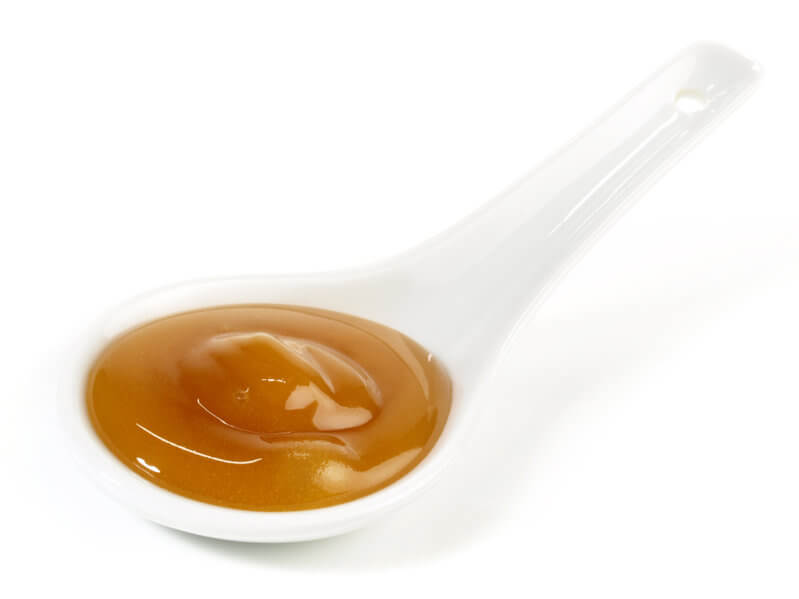Today we’re going to talk about the many skin benefits of Manuka honey. Wait, honey? In skincare? Yes! While it may sound like a recipe for disaster, turns out this special honey may actually be a “holy grail” when it comes to common skin-related issues and diseases.
As we have discussed in our earlier article, there are many uses for Manuka honey. This unique honey, produced primarily in New Zealand, is the result of nectar from one specific plant—the Manuka tree–and its rarity is one reason why it is so expensive compared to other types of honey. It has been studied and proven helpful for everything from IBS to gingivitis, is an effective antibacterial, antifungal, and perhaps even antiviral (although the jury is still out on that one.)
1. Significantly Improved Eczema and Psoriasis

Many sufferers of common skin diseases like eczema (also referred to as atopic dermatitis) have tried prescription after prescription with very little relief, often for years on end. They may eventually end up on strong topical steroid medications to bring much-needed calming and relief to their skin, some of which have rather unpleasant side effects. Enter Manuka honey.
A study was done in Dubai about the effects of Manuka honey in skin management protocols, as opposed to the more standard Vaseline. They created an “ointment” using Manuka honey, olive oil, and beeswax in equal ratios. 80% of the eczema patients and 60% of the psoriasis patients using the Manuka honey showed “significant improvement” after two weeks. Half were even able to decrease their topical steroid use by 75% without any negative reaction.
If you’ve struggled with either of these conditions, perhaps Manuka honey could help you!
2. A Surprising Treatment for Acne

Much like eczema and psoriasis sufferers, many acne sufferers have spent a lot of time and money trying to find a solution that eases their symptoms or even clears them completely. Did you know one of the skin benefits of Manuka honey is that it can help with acne?
How Does Honey Help Acne?
Because honey is naturally acidic, it can help balance your skin’s overall pH levels and potentially even help with existing zits. It also softens the skin, can help slough away dead skin cells, and reduce inflammation (and therefore reduce redness and swelling.) The antibacterial properties of Manuka honey also help keep the skin free of all kinds of pore-clogging bacteria, including antibiotic-resistant types.
How Do I Use It?
You could try using it as a cleanser—massage a pea-sized amount of honey all over your face for several minutes, then rinse your skin and pat dry. Masks are another popular way to experience the skin benefits of Manuka honey You can do Manuka honey by itself, or mix it with ground oats and lemon juice. Leave it on your face for 10-15 minutes before rinsing. Lastly, you could try a targeted method for pimples: simply apply a very small amount to the pimple and let it be. The antibacterial properties of the honey should begin to shrink the pimple, leaving you looking fresh and glowing.
3. An Easy Cold Sore Remedy
If you’ve ever experienced a cold sore, you know that it can be absolutely miserable (and they always seem to pop up at the worst time!) Surprisingly, another one of the skin benefits of Manuka honey is its ability to fight cold sores. In a study, people who applied honey to their cold sores healed 43% faster than they did when they used the leading prescription medication, with no bothersome side effects. Two of the cases in the study even experienced complete healing with no recurrence after using honey! This shows that honey not only has an antibacterial effect but an antiviral one as well.
Want to try this one at home? For best results, apply a small amount of Manuka honey topically at the first sign of a cold sore. Continue using it until the sore is gone!
4. All Kinds of Wounds Heal Faster
One of the most common skin benefits of Manuka honey is its use in wound healing. Honey was an ancient folk medicine remedy for things like burns, boils, ulcers, and infected wounds, and lately, science has been discovering what our ancestors already knew—honey is healing! Honey has been found to have antioxidant, antibacterial, and anti-inflammatory properties, and there are even sterilized honey products used as wound dressings in hospitals.
Honey has been proven effective in treating partial-thickness burns, pressure sores, diabetic ulcers, and other acute and chronic wounds. A study of 40 wound-care patients found that 88% of them were healed using honey alone!
The unique antibacterial nature of honey can help wounds heal faster and potentially even better. Traditional antibiotics attack the cell wall of bacteria in order to destroy it, whereas honey actually dehydrates the bacteria—destroying it from the inside out. This may be why it is so effective for so many different kinds of wounds! Let’s talk about two very specific types:
Diabetic Wounds
Many diabetes sufferers will, at some point, suffer a wound of some kind (usually on their toes, feet, or even ankles.) These wounds often take a lot longer to heal than a “typical” wound, and that’s where Manuka honey comes in! One of the skin benefits of Manuka honey is that it is known as an “all in one” treatment for diabetic wounds.
This is because its unique properties combat many different types of microorganisms, as well as help to reduce inflammation and even help lower the smell of the wound. In addition, honey is much more cost-effective than other types of treatments, making it a great option for those suffering from diabetic wounds.
Surgical Incisions
Some studies have shown that honey can even help surgical incisions heal better! One study measured the effects of using Manuka honey on an incision site after eyelid surgery instead of the usual Vaseline. Many of the study participants reported less pain after using the honey, as well as less “tightness” of the scar. While the study didn’t show any real long-term effects, more studies should be done on the possibility of Manuka honey being a great scar-reducer.
5. And It’s Even Antifungal, Too
We’ve talked about the antibacterial and antiviral properties of Manuka honey, but did you know it is also antifungal? Initial studies have shown that honey has a negative effect on the common funguses that cause ringworm. More study on the antifungal properties is needed, but this is one of the likely skin benefits of Manuka honey.
6. It Can Cause Quicker Healing in Burns
Believe it or not, honey is actually used in the treatment of partial-thickness burns. Studies have even shown that using honey as a dressing on burns may cause them to heal more quickly. The antibacterial nature of Manuka honey is great for burns, as it will help keep them from getting infected. Surprisingly, this completely natural product has the same or better results than other more conventional burn treatments. Some burn patients have also reported increased pain relief after using honey!
I’ve always kept aloe around for those occasional kitchen mishaps that result in a burn. Perhaps it’s time to give Manuka honey a try, instead.
There Are Many Skin Benefits of Manuka Honey

This list just represents a few of the most striking benefits, but there are definitely many more. So, now that you’re officially convinced—the skin benefits of Manuka honey are well worth keeping a jar around—how do you know exactly what kind of honey to buy?
Where Can I Buy Manuka Honey?
While it used to be a fringe product found only in specialized grocery stores, Manuka honey has been quickly growing in popularity over the last couple of decades. It’s important to make sure you’re getting a product that’s worth your money, not one that will leave you disappointed. You can find some in your local grocery stores or even Costco, but make sure to look for one that is 100% pure Manuka honey from New Zealand with no fillers, additives, or mixtures of other honey varieties.
How Do I Buy the Right Kind?
The other thing you want to look for is the UMF (Unique Manuka Factor) label. This label is only found on products that come from licensed sources in New Zealand (like beekeepers, exporters, etc.) and is an assurance of quality. You will also find a number on this label—the higher the number, the higher the level of beneficial compounds in that specific brand or type of Manuka honey. If you’re looking to use Manuka honey for its many skincare-related benefits, the higher the number, the better!
Conclusion
As we talked about in our previous article, Manuka honey seems promising as a treatment for many medical conditions that the “traditional” field of medicine doesn’t know how to fix. None of this is considered medical advice, but whether it’s eczema or acne, Manuka honey seems to be well worth a try!
Sources:
1. Wound healing (approved by USFDA) (https://pubmed.ncbi.nlm.nih.gov/28901255/ & https://pubmed.ncbi.nlm.nih.gov/8121994/ & https://www.cochrane.org/CD005083/WOUNDS_honey-as-a-topical-treatment-for-acute-and-chronic-wounds)
2. Help reduce scarring stiffness and pain (https://pubmed.ncbi.nlm.nih.gov/27429228/)
3. Diabetic Ulcers (https://pubmed.ncbi.nlm.nih.gov/25386217/)
4. Burn healing (pain-relieving, improved healing, decreased inflammation https://www.ncbi.nlm.nih.gov/pmc/articles/PMC3941901/)
5. Sore or Strep throat (https://www.microbiologyresearch.org/content/journal/micro/10.1099/mic.0.053959-0)
6. IBS (https://onlinelibrary.wiley.com/doi/abs/10.1002/ptr.2523 & https://pubmed.ncbi.nlm.nih.gov/18688794/ )
7. Oral health (gingivitis) (https://pubmed.ncbi.nlm.nih.gov/15125017/)
8. Staph and MRSA (https://pubmed.ncbi.nlm.nih.gov/21903658/)
9. Acne
10. eczema/psoriasis (https://www.sciencedirect.com/science/article/abs/pii/S0965229903001201)
11. Ringworm (https://onlinelibrary.wiley.com/doi/abs/10.1111/j.2042-7158.1996.tb00540.x)
12. C-Dif (https://bmcresnotes.biomedcentral.com/articles/10.1186/1756-0500-6-188)
13. Soothing a cough (https://pubmed.ncbi.nlm.nih.gov/20618098/)
14. Gastric ulcers & H.Pylori (https://www.ncbi.nlm.nih.gov/pmc/articles/PMC4685122/ & https://pubmed.ncbi.nlm.nih.gov/8308841/)
15. Recurring respiratory infections in CF patients (https://www.ncbi.nlm.nih.gov/pmc/articles/PMC4398880/)
16. Potentially anti-cancer (https://www.ncbi.nlm.nih.gov/pmc/articles/PMC5406168/)
17. Antiviral (https://www.ncbi.nlm.nih.gov/pmc/articles/PMC5406168/)
18. Current study for covid (https://clinicaltrials.gov/ct2/show/NCT04323345)
19. Cold Sores (https://www.ncbi.nlm.nih.gov/pmc/articles/PMC2686636/)
20. Seasonal allergies (https://pubmed.ncbi.nlm.nih.gov/21196761/)
21. Neutralize Free Radicals (antioxidant) (https://researchcommons.waikato.ac.nz/bitstream/handle/10289/5696/thesis.pdf?sequence=3)

